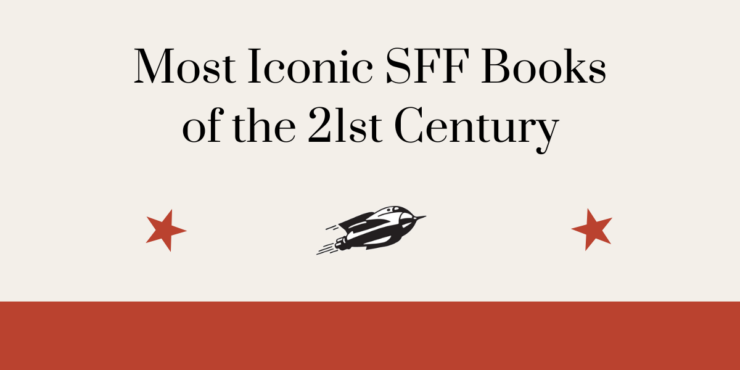It’s a great time to be a speculative fiction reader.
We’re spoiled for choice—with masterful writers reworking classic tropes, challenging cultural perspectives, and taking us beyond our wildest imaginations, the landscape of SFF has never looked more bountiful. And the best part about it is that nerds love hard, so there is no shortage of shouting from rooftops about the books that we love. Part of the joy of loving a story is sharing that love with others.
That’s why we reached out to some of our favorite authors (plus the Reactor staff) and asked them to share their choices for the most iconic books of the 21st century (so far), with the intention of assembling a collection of titles that could be seen as the most influential, most representative, and/or highest quality examples of this expansive genre that we adore. Our hope was to to highlight books that resonate with readers, that may have been overlooked, and that reflect the inclusivity and imagination that speculative fiction is known for.
The only rules were: titles should be Adult or YA, and published in English during the years 2000-2024. This includes anything from novels to novellas to comics, literary crossover or genre-bending work, nonfiction related to SFF, and more. All subgenres are welcome, and all series are represented by the first title published in that series.
It’s not an easy task, narrowing down all of the incredible sci-fi, fantasy, horror, and genre-bending books that have been published in the first 24 years of this century and distilling them into a list like this. So we didn’t, really. We’re doing something different just because we can, and because we wanted to highlight as many titles as we possibly could.
In addition to this collection of the books that got the most votes overall, we’ve also highlighted works in translation, comics & manga, anthologies, and some hidden gems.
Of course, we also want to hear from our readers! Tell us your choices here, and share your personal ballots on social media with the hashtag #iconicsff.
The Most Iconic Works in Translation
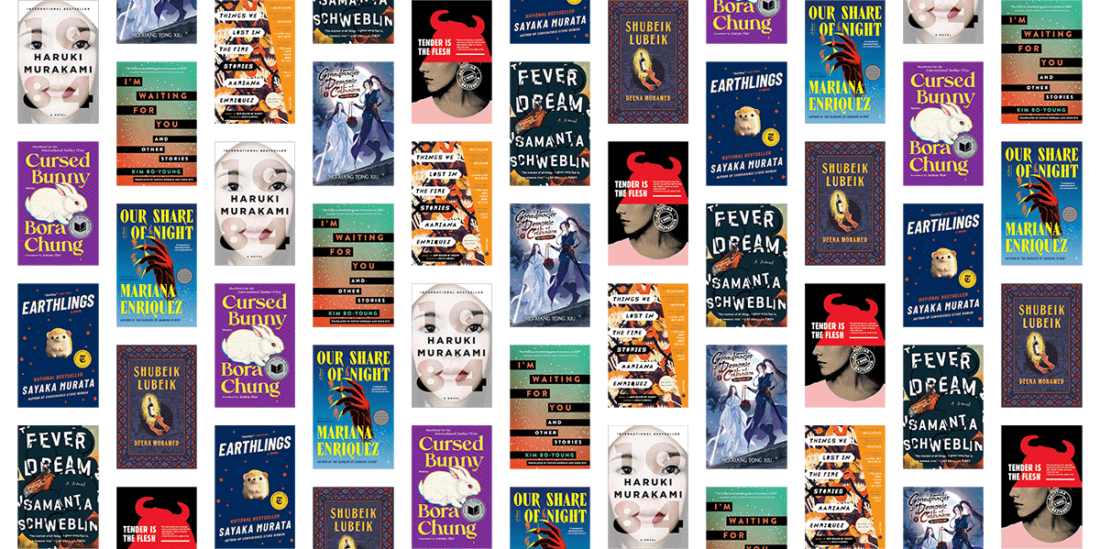
Work in translation is an essential part of then literary landscape no matter what the genre—but especially when it comes to speculative fiction. By challenging our cultural viewpoints down to a craft level, we are able to further expand the possibilities of what sci-fi, fantasy, and horror can be. The work of a translator often goes unnoticed, but working to not only make the language comprehensible to a new audience but also the ideas and visions of the author is no small feat. Where would we be without them? Here are the most iconic translated speculative fiction books of the 21st century, as chosen by our authors:
- 1Q84 by Haruki Murakami, translated by Jay Rubin and Philip Gabriel
- Cursed Bunny: Stories by Bora Chung, translated by Anton Hur
- Earthlings by Sayaka Murata, translated by Ginny Tapley Takemori
- Fever Dream by Samanta Schweblin, translated by Megan McDowell
- Grandmaster of Demonic Cultivation by Mo Xiang Tong Xiu, translated by Suika and Pengie (Editor)
- I’m Waiting For You and Other Stories by Kim Bo-Young, translated by Sophie Bowman and Sung Ryu
- Our Share of Night by Mariana Enriquez, translated by Megan McDowell
- Shubeik Lubeik by Deena Mohamed, translated by the author
- Tender Is the Flesh by Agustina Bazterrica, translated by Sarah Moses
- Things We Lost in the Fire by Mariana Enriquez, translated by Megan McDowell
The Most Iconic Speculative Fiction Anthologies
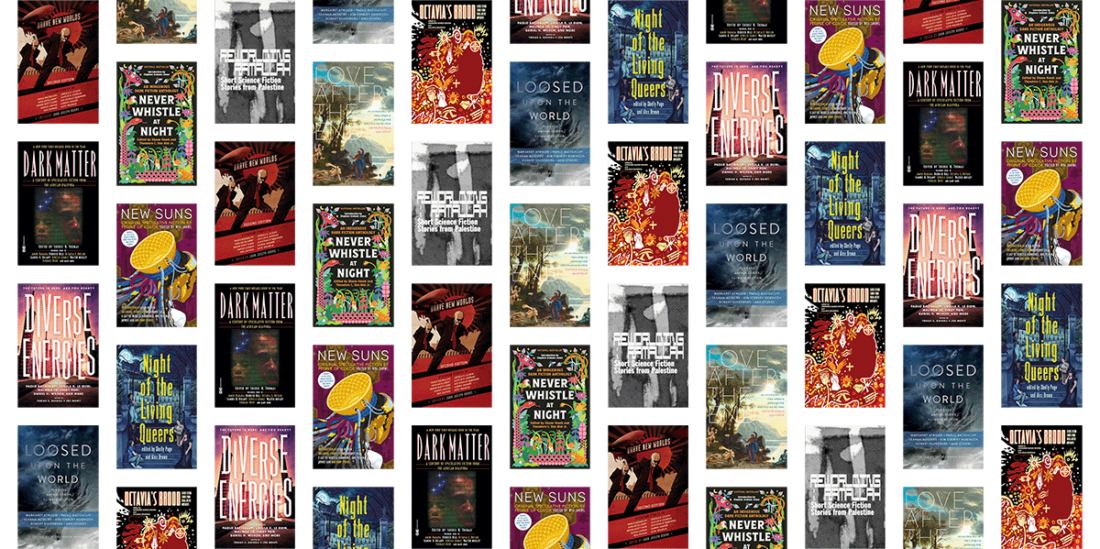
Anthologies hold such a special and revered place in the world of speculative fiction. In addition to being an entry for the most exciting new voices in genre fiction, anthologies allow us to explore themes, cultures, and trends with a microscope. In addition to being a way to find a new favorite author, anthologies serve as a way to contextualize an author’s work in conversation with their peers and their predecessors, creating a lineage that defies boundaries. Here are the most iconic speculative fiction anthologies of the 21st century, as chosen by our authors:
- Brave New Worlds, edited by John Joseph Adams
- Dark Matter: A Century of Speculative Fiction from the African Diaspora, edited by Sheree Renee Thomas
- Diverse Energies, edited by Tobias S. Buckell and Joe Monti
- Loosed Upon the World: The Saga Anthology of Climate Fiction, edited by John Joseph Adams
- Love After The End: An Anthology of Two-Spirit and Indigiqueer Speculative Fiction, edited by Joshua Whitehead
- Never Whistle at Night: An Indigenous Dark Fiction Anthology, edited by Shane Hawk and Theodore C. Van Alst Jr.
- New Suns: Original Speculative Fiction by People of Color, edited by Nisi Shawl
- Night of the Living Queers, edited by Shelly Page and Alex Brown
- Octavia’s Brood: Science Fiction Stories from Social Justice Movements, edited by Adrienne Maree Brown and Walidah Imarisha
- Reworlding Ramallah: Short Science Fiction Stories from Palestine, edited by Callum Copley
The Most Iconic Speculative Comics, Manga, and Graphic Novels of the 21st Century
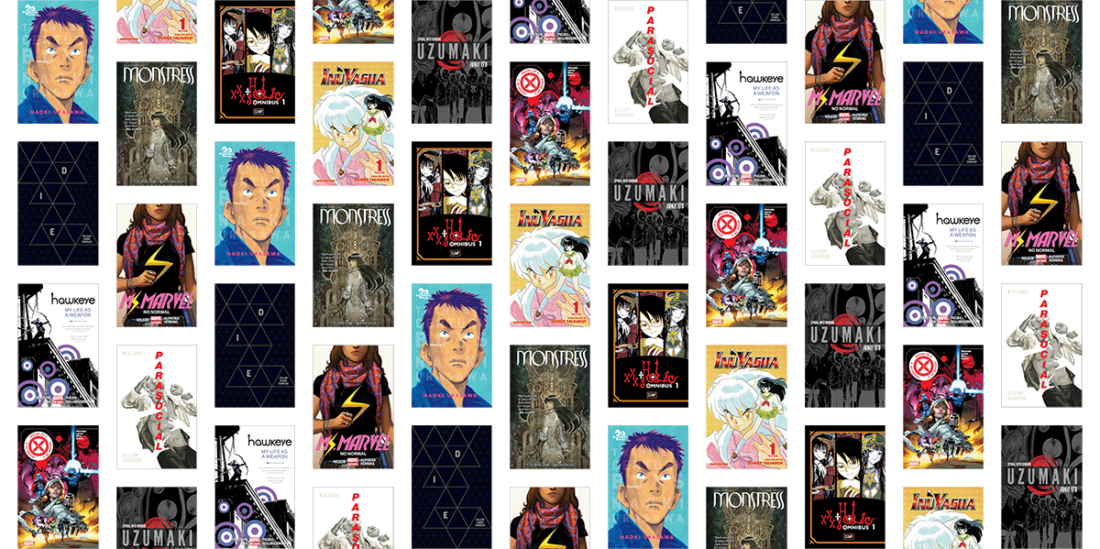
Where would speculative fiction be without comics and graphic novels? Some of the most exciting, boundary-defying work comes through this medium, and you’d be hard pressed to find any SFF fan who wasn’t impacted by comics, graphic novels, or manga in some way. Here are the most iconic speculative fiction comics, manga, and graphic novels of the 21st century, as chosen by our authors:
- 20th Century Boys by Naoki Urasawa
- DIE by Kieron Gillen & Stephanie Hans
- Hawkeye by Matt Fraction & David Aja
- House of X/Powers of X Jonathan Hickman, Pepe Larraz, & R.B. Silva
- Inuyasha by Rumiko Takahashi
- Monstress by Marjorie Liu & Sana Takeda
- No Normal, Ms. Marvel Vol. 1 by G. Willow Wilson & Adrian Alphona
- Parasocial by Alex De Campi & Erica Henderson
- Uzumaki by Junji Ito
- XXXHolic by CLAMP
The Most Iconic Speculative Hidden Gems of the 21st Century
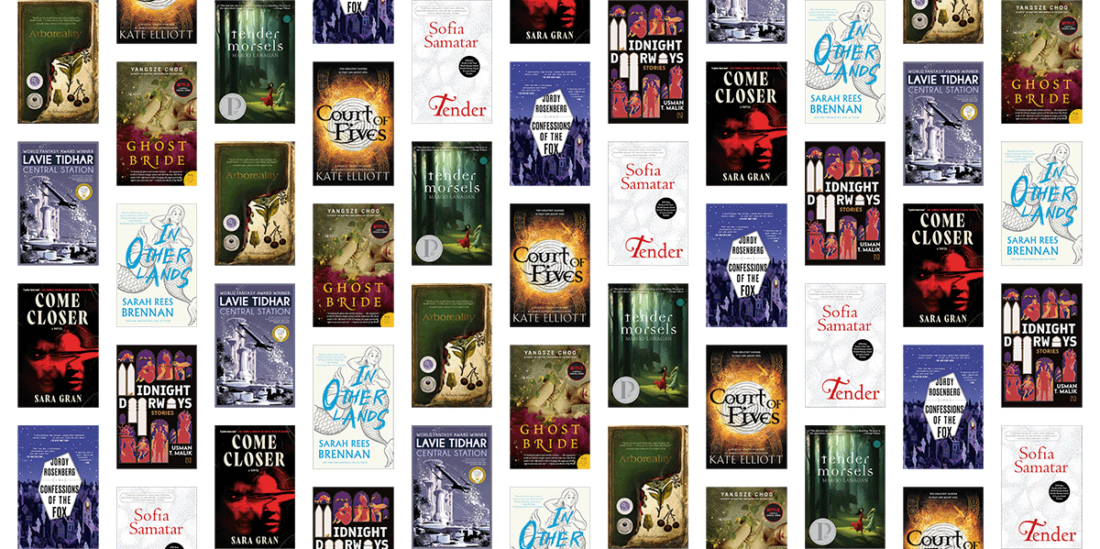
One of the most exciting part of this project has been spotlighting beloved books that don’t often appear on lists like these. But just because they might not be as widespread or mainstream doesn’t make them any less groundbreaking. We asked our authors to include titles that they felt had gone under-appreciated, or were just favorites that they wanted more people to know about, and the results were incredible. Here are the most iconic speculative hidden gems of the 21st century:
- Arboreality by Rebecca Campbell
- Central Station by Lavie Tidhar
- Come Closer by Sara Gran
- Confessions of the Fox by Jordy Rosenberg
- Court of Fives by Kate Elliott
- The Ghost Bride by Yangsze Choo
- In Other Lands by Sarah Rees Brennan
- Midnight Doorways by Usman Malik
- Tender by Sofia Samatar
- Tender Morsels by Margo Lanagan
Your Favorite Author’s Favorite Author
Some authors have written multiple iconic books—to the point that votes were split across multiple of their titles. Here are the authors with the most mentions overall:
- Holly Black
- Ted Chiang
- Susanna Clarke
- Mariana Enriquez
- Nicola Griffith
- N.K. Jemisin
- Simon Jimenez
- Stephen Graham Jones
- R.F. Kuang
- Victor LaValle
- Ann Leckie
- Kelly Link
- Cixin Liu
- Carmen Maria Machado
- David Mitchell
- Naomi Novik
- Sofia Samatar
- Catherynne M. Valente
- Jeff VanderMeer
The Most Iconic Speculative Fiction Books of the 21st Century
The best part of collecting this data was getting to see the wide range of books that have become so beloved by sci-fi and fantasy readers over the past 24 years. There were a few obvious standouts—in fact, a few people mentioned they weren’t including our top few titles because they knew everyone else would—but also a lot of variety. We had everything from cozy fantasy to space opera to gruesome horror—and everything in-between. There were short story collections and lengthy series, familiar favorites and plenty that were unfamiliar even to the Reactor team.
But that’s the beauty of loving books, isn’t it? We have books we’ll love forever, but there’s always something new on the horizon to discover.
We wanted this list to be expansive. ‘Iconic’ can mean so many things—whether it be books that influenced the genre as a whole, personal favorites, stories that feel like the distillation of everything that makes SFF great, or incredible works that need more attention. And the titles listed here represent all of that.
Thank you to everyone who voted, and to these books for existing. Here are the top picks, listed in order of the most mentions:
The Fifth Season by N.K. Jemisin (2015)
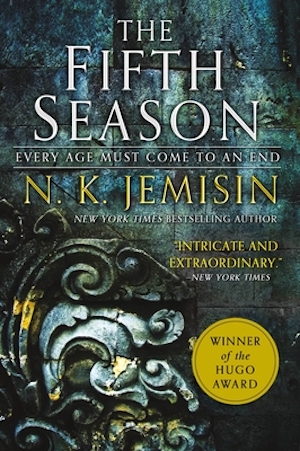
“Jemisin’s impact on the genre with this trilogy and this book in particular has been, quite literally, earth-shaking.” —Tochi Onyebuchi, Goliath
“It’s an obvious pick, but it’s obvious for a reason. The number of interesting second person or genre bending novels that followed is evidence of Jemisin’s undeniable impact at the craft level, while publishers no longer being able to deny the popularity and profitability of diverse science fiction is testament to the axis shifting mark she made on the industry.” —Micaiah Johnson, The Space Between Worlds
“A seismic achievement on every level—prose, plot, structure, pace. Jemisin never puts a foot wrong.” —Emily Hughes, Horror for Weenies
Jonathan Strange & Mr Norrell by Susanna Clarke (2004)
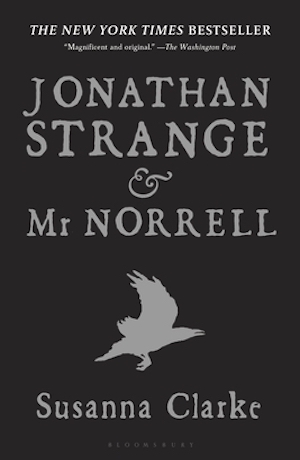
“A classic for a thousand reasons which have been more eloquently stated by a thousand individuals other than myself. It is, simply, in a class amongst itself.” —Roshani Chokshi, The Last Tale of the Flower Bride
“Notable for its own delicious “Dickens/Austen with magic” brilliance, also worth mentioning since it is one of the very few fantasy novels to have a really good screen adaptation.” —Garth Nix, The Left-Handed Booksellers of London
“I was lucky enough to hear Susanna Clarke read from it at what I believe was her first New York book event. She read “The Stones of York”, and 20 years later, I can close my eyes and remember her voice, the gasps of the people around me, where I was in the room, all of it.” —Leah Schnelbach, Reactor
All Systems Red by Martha Wells (2017)
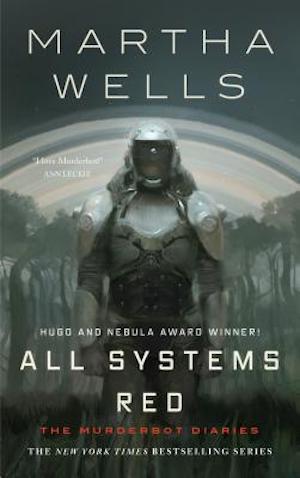
“I’m very fond of novellas and short fiction. Introducing the world to Murderbot earns this book a place on my list.” —Sonia Sulaiman, Thyme Travellers: An Anthology of Palestinian Speculative Fiction
“All Systems Red is iconic because it was how the world met Murderbot, and the world fucking needs Murderbot. Murderbot for president, Murderbot for Pope, Murderbot FOREVER.” —Leah Schnelbach, Reactor
Ancillary Justice by Ann Leckie (2013)
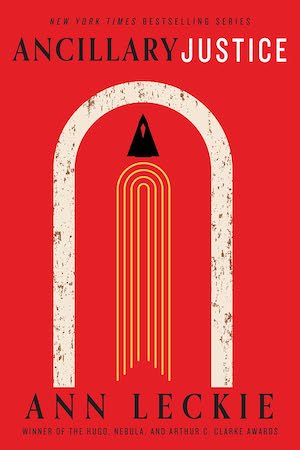
“Not a reinvention of Space Opera, but a skillful and original blend of the form, losing or twisting some old ingredients and introducing new ones for a modern audience.” —Garth Nix, The Left-Handed Booksellers of London
“Obviously the way Leckie plays with point-of-view is amazing here, but the thing that has stuck with me over the years is her creation of environment. The only time I felt colder reading a book was when I was on Gethen.” —Leah Schnelbach, Reactor
Gideon the Ninth by Tamsyn Muir (2019)
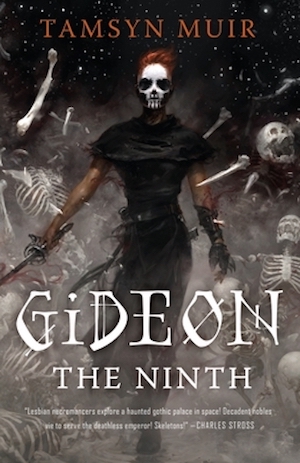
“You cannot imagine the tizzy the Tor offices were in around the release of this book—we all fell in love with Gideon, and then the rest of the world did too. Our favorite redheaded cavalier has spawned a huge fandom, cemented the Sword Lesbian trope as a hallmark of SFF, and is a great example of work that is both sci-fi and fantasy. With prose that appeals especially to Extremely Online millennial readers, Gideon the Ninth is a modern classic.” —Christina Orlando, Reactor
“There are so many things I love about this book that to list them sounds like I’m rattling off a grocery list for like, the messiest dinner party ever. Necromancers! Murder mystery! HOMESTUCK! But what keeps me coming back to Tamsyn Muir’s masterpiece is the way she balances duty and intimacy. Harrow and Gideon are everything to one another, which is the thing that keeps them apart. It holds my whole heart.” —Bailey Bigott, Reactor
“Is there anything more iconic than making Catholicism fun and (even more) gay? ” —Leah Schnelbach, Reactor
The Hunger Games by Suzanne Collins (2008)
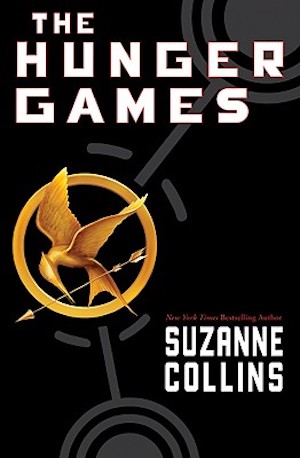
“Obviously iconic, but considering I didn’t read the trilogy until last year, I think I’m uniquely positioned to say this brilliant, grounded, propulsive series defies trend while defining an era.” —Olivie Blake, The Atlas Six
“A huge percentage of YA fantasy even today features a ‘competition to the death’ which means that even if The Hunger Games did not create the trope, it hammered it in so hard that YA hasn’t moved past it yet.” —Kate Elliott, Unconquerable Sun
Jade City by Fonda Lee (2017)
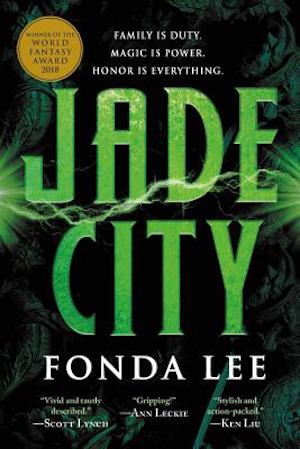
“Jade City has everything you could want—an inventive magic system, warring factions, complicated politics, and characters to root for even when they do terrible things. Jade City represents a turning point in genre—it was making huge waves during a time when discussions around diversity and inclusivity in publishing were becoming louder, and was one of the first to move the discussion beyond just representation on the page. Lee’s Green Bone Saga grabbed anyone who dared call it ‘just an Asian fantasy’ by the collar, looked them right in the eye, and punched their teeth in.” —Christina Orlando, Reactor
Piranesi by Susanna Clarke (2020)
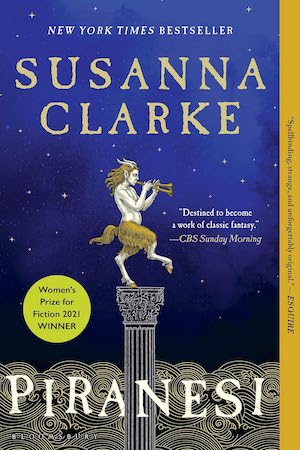
“I have such a vivid memory of reading this book, the experience of moving through The House being an intense, whole body takeover. Each twist and turn was spectacular, with such a show of intellect and creativity I found myself thrilled to be lost within The House’s many halls. This is a book I wish I could experience for the first time over again.” —Christina Orlando, Reactor
“I read Piranesi over the course of one long cold day, early in the pandemic, and felt… I’d been alone for so many days at the point that nothing felt real anymore? But as I read, warmth crept into the room. And joy, and life, and hope. I want even more people to read Piranesi because I think every human being on Earth should read Piranesi. I think there are a few people on Earth who should be forcibly restrained while someone reads Piranesi to them until it fucking sinks in. Can you imagine how much better everything would be?” —Leah Schnelbach, Reactor
The Only Good Indians by Stephen Graham Jones (2020)
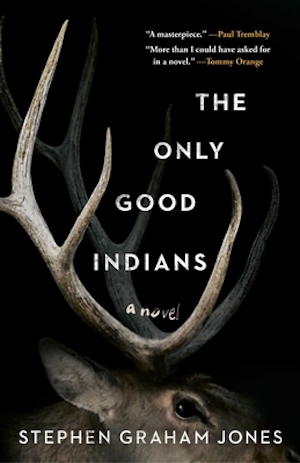
“Jones already had 25 books under his belt when he published The Only Good Indians, a breakthrough book that is as surefooted and assured as a novel written by a writer with 25 books under his belt. Spiked with jolts of violence that’ll scare the horses and moving like a freight train, there was nothing else like it on the market and it placed Jones squarely center stage.” —Grady Hendrix, How To Sell a Haunted House
“The book that firmly (and correctly) established Jones as a modern horror master. Empathetic yet brutal, conversational yet elegant.” —Emily Hughes, Horror for Weenies
The Three-Body Problem by Liu Cixin, translated by Ken Liu (2006)
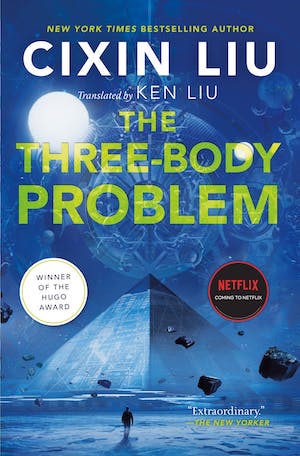
“The Three-Body Problem and its sequels have absolutely rocked the world of science fiction, and I don’t think it’s a stretch to say the series influenced a generation of speculative fiction writers in a big way. By asking big questions about the universe and the limitations of humanity throughout its discussion of politics, culture, and technology, Liu Cixin’s The Three-Body Problem uses all the best tools of sci-fi to expand both our minds and our hearts. The stakes are high so you better be ready.” —Christina Orlando, Reactor
Babel by R. F. Kuang (2022)
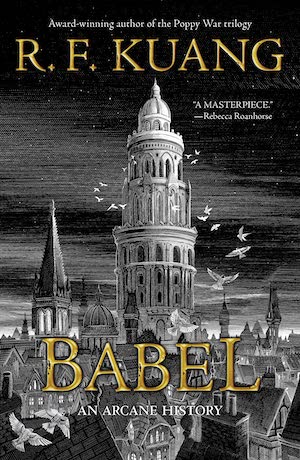
“‘That’s the great contradiction of colonialism, it’s built to destroy that which it prizes most.’ Kuang’s Babel is a painful and beautiful look at colonization and forced assimilation, it’s a look at what it means when you’re not allowed to have a diaspora, unable to build community.” —Preeti Chhibber, Spider-Man’s Social Dilemma
“Babel quickly became one of my favorite books of all time. Kuang deftly navigates discussions of colonialism, linguistics, translation, revolution, and academia in one powerful narrative. It’s challenging, engaging, and passionate. If I could, I’d make this required reading for everyone on the planet.” —Christina Orlando, Reactor
The Changeling by Victor LaValle (2017)
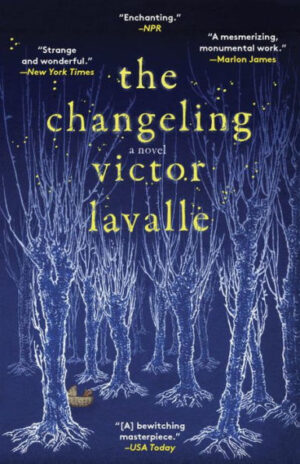
“This book is true horror (it contains the single most upsetting scene I’ve ever read, ever) and a weird, dark love letter to New York City, and a celebration of the joys and pitfalls of parenthood. ” —Leah Schnelbach, Reactor
A Memory Called Empire by Arkady Martine (2019)
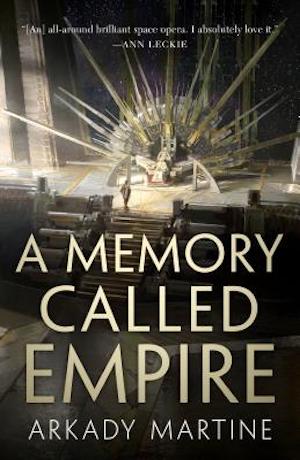
“How do you contend with a culture devouring your own? Arkady Martine’s space opera classic makes the political personal, adding a dash of linguistics, poetry, and revolution. Not all books are easy to read. This one is worth the effort.” —Bailey Bigott, Reactor
Cloud Atlas by David Mitchell (2004)
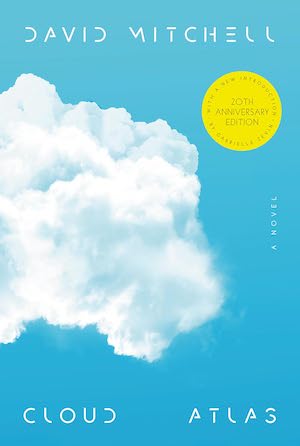
“There are a lot of ways books can be “good,” each depending on who reads them. But sometimes you just have to take a step back and ask “How did you even do this???” This is the experience of reading Cloud Atlas. A series of interlocking tales from the very far past to the very distant future, Cloud Atlas forces you to pay attention to the threads tying them together. Where language, perspective, and social realities shift, it’s the humanity at the core that does not.” —Bailey Bigott, Reactor
“Cloud Atlas is iconic to me because it took what might have been a structural trick and used it to create a book of serious emotional depth. For anyone who hasn’t read it (READ IT), it’s made up of six different novellas, in six different eras, that are all in conversation with each other. Each of the first five arcs is broken at the halfway mark, and their second halves only come, in reverse order, after the the unbroken novella at the center of the book, Sloosha’s Crossin’ an’ Evrythin’ After. Sloosha’s Crossing is the chronological ending of the entire book (it takes place in the far future), and while this nesting doll order is cool, it could have just been so much structural wankery. Instead Mitchell uses each of his six endings to amplify the themes of the book, until the ultimate conclusion of the first novella, The Pacific Journal of Adam Ewing, becomes an extraordinarily raw and emotional reading experience.” —Leah Schnelbach, Reactor
Exhalation: Stories by Ted Chiang (2019)
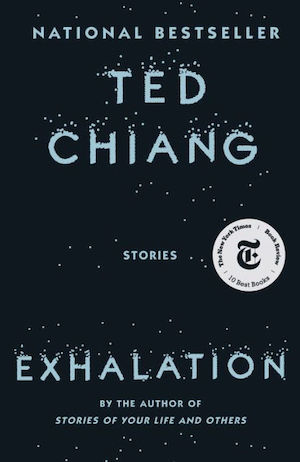
“It’s no surprise that two titles by Ted Chiang ended up on this list multiple times. He is one of the greats, and has consistently pushed the boundaries of what science fiction can be, especially in the short form.” —Christina Orlando, Reactor
Hild by Nicola Griffith (2013)
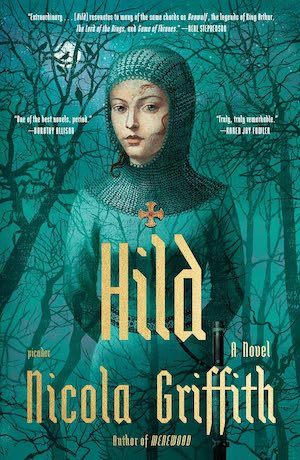
“In Hild, Nicola Griffith weaves a spell out of gorgeous, captivating prose—it’s a work of spectacularly detailed worldbuilding that completely transports the reader to 7th-century Britain, until you can feel the warp and weft of the world surrounding you, carrying you along. You could say that it’s a fantasy novel without magic—except that’s debatable; the protagonist is a seer whose strengths lie in her singular powers of observation and ability to analyze patterns and people. Hild may not be supernaturally gifted, but she is extraordinary and fascinating, as is Griffith’s novel, a work which is suffused with its own rare magical qualities, bringing another world and time to vivid, breathtaking life.” —Bridget McGovern, Reactor
Six of Crows by Leigh Bardugo (2015)

“Six of Crows is one of the leaders of YA’s golden age. The post-Hunger Games era in YA fiction brought us so many iconic stories and characters, and Bardugo’s rogues from Ketterdam are the best of them. Bardugo has leveled up with every new title, but this is the one that really cemented her in readers’ hearts.” —Christina Orlando, Reactor
Stories of Your Life and Others by Ted Chiang (2002)
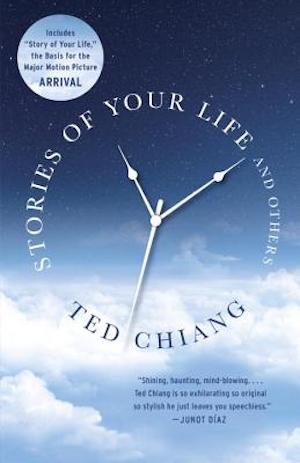
“If this collection were nothing more than the story “Hell Is the Absence of the Others,” it would still merit inclusion on my list.” —Tochi Onyebuchi, Goliath
This is How You Lose the Time War by Amal El-Mohtar & Max Gladstone (2019)
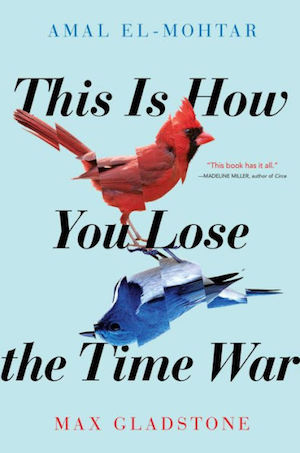
“A book the entire internet can agree on. Amal El-Mohtar & Max Gladstone’s masterpiece features some of the most beautiful prose I’ve read this century, and a story of romance across time and enemy lines. It’s absolutely insane to me how much they packed into this novella.” —Christina Orlando, Reactor
Uprooted by Naomi Novik (2015)
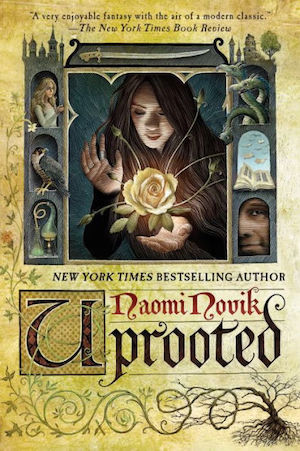
“I know there’s plenty of Novik to choose from—the dragon books, the magic school books—but for my money she’s at her considerable best when she’s plumbing Polish/Jewish folklore.” —Rachel Hartman, Tess of the Road
The Goblin Emperor by Katherine Addison (2014)
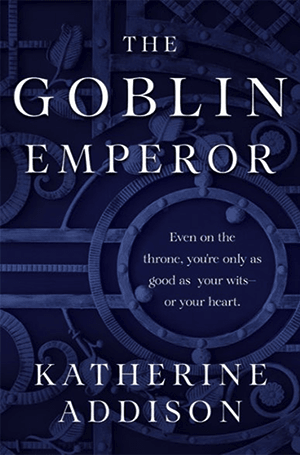
“I won’t call The Goblin Emperor cozy fantasy even though it is often considered a hallmark of that subgenre. I don’t think The Goblin Emperor attempts to hug you or give you a hot mug of tea—it challenges you, it has twists and turns, there are threats. It just has tenderness and compassion at the center of it. Emperor Maia is better than any of us deserve.” —Christina Orlando, Reactor
Annihilation by Jeff VanderMeer (2014)

“Annihilation’s hazy prose and shadowy dread clings to you long after you finish it. Imagine a hot, rotting summer day in Florida. Now imagine it with four other people you don’t really get along with. The movie has become a cult favorite even when it diverges from the original story, but Annihilation proves there are many ways to leave you feeling haunted.” —Bailey Bigott, Reactor
Feed by M.T. Anderson (2002)
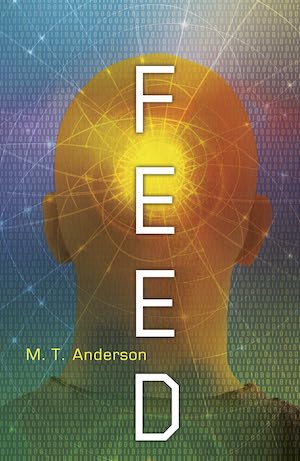
“This book both preceded and exceeded the big YA dystopian wave of the early ‘00s. Prescient, hilarious, and devastatingly tragic. I loved it so hard I still remember the first line: “We went to the moon to have fun, but the moon turned out to completely suck.”” —Rachel Hartman, Tess of the Road
Fullmetal Alchemist by Hiromu Arakawa (2005)
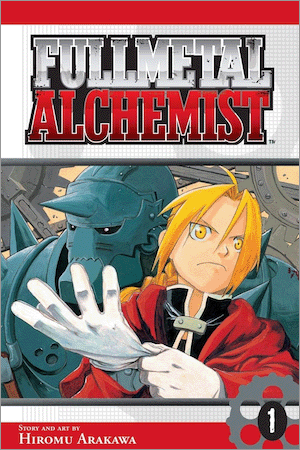
“Arakawa’s rich world and beloved characters have been told and retold through different mediums, but it’s the manga that deserves the credit for where everything began. Her story of two brothers accidentally bargaining away their bodies in order to revive their dead mother intertwines with the larger narrative of a country trying to drag itself back together after a civil war. How do we move on past this level of state-sanctioned violence? What kindness do we owe one another after having been denied it in the past?” —Bailey Bigott, Reactor
Magic for Beginners by Kelly Link (2005)
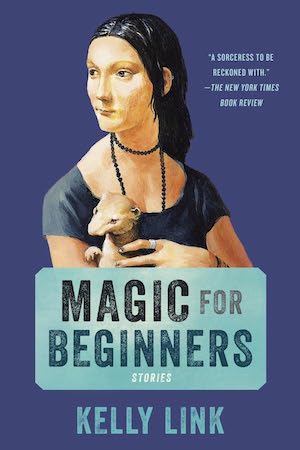
“Kelly Link is the GOAT. She is the Michael Jordan/Simone Biles/Derek Jeter of speculative fiction–a master of short form, constantly doing backflips over genre expectations. Her craft is immaculate. Magic for Beginners is one of her more popular collections, but each one is iconic in its own right, as is her novel, The Book of Love. If there was Kelly Link fan merch, I would be wearing a t-shirt with her face on it. …wait, should we make t-shirts?” —Christina Orlando, Reactor
“Link is the master of the margins, and I would argue that her work has irrevocably shaped the conversations we have around what “genre” is in the twenty-first century. Her stories are sometimes dark, always strange, often funny, and never let you walk away with your understanding of reality intact. Start here and read everything she has written.” —Molly McGhee, Jonathan Abernathy You Are Kind
Saga by Brian K. Vaughan & Fiona Staples (2012)
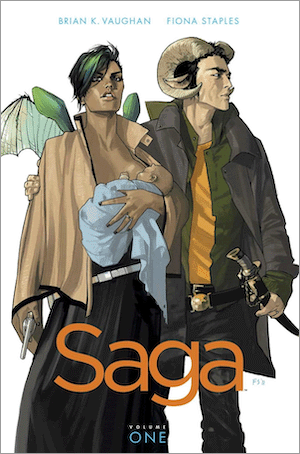
“A story about finding love and building a home in the midst of interplanetary conflict, Saga is an ongoing… well, saga about a family racing across the stars to escape an endless war between their two races. They are constantly in danger and in defiance, yet always find moments of romance and humor. Saga does what all great science fiction does—it reminds us that even when the circumstances feel insurmountable, even when we feel small and helpless amongst the stars, it is our connections with others that really matter.” —Christina Orlando, Reactor
Station Eleven by Emily St. John Mandel (2014)
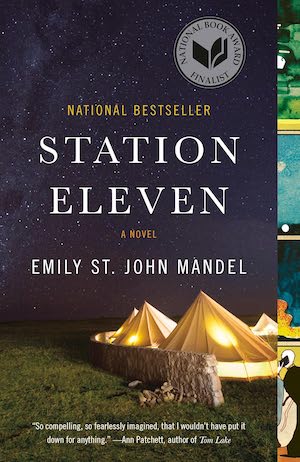
“Raise your hand if you were personally victimized by reading this for the first time during the pandemic (picture me, raising my hand). It’s a testament to Mandel’s skill as a writer that the book managed to be so prophetic that reading it in 2020 came with its own panic attack, but also so enjoyable that that wasn’t enough to make us put it down.” —Micaiah Johnson, The Space Between Worlds
“A perfect book. No flaws, no notes.” —Christina Orlando, Reactor
The Cruel Prince by Holly Black (2018)
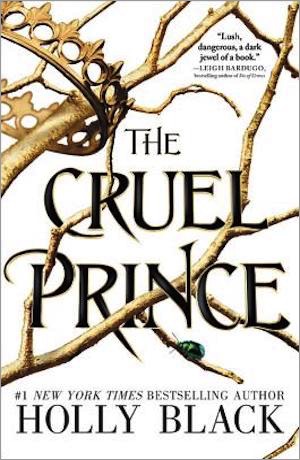
“The book is violent and beautiful, and when I’ve described it in the past, it’s as a feral, angry female scream in book-form. Jude is allowed to be angry and that’s revolutionary. ‘Stay angry, little Meg.’ for a new generation.” —Preeti Chhibber, Spider-Man’s Social Dilemma
“Every YA book has tried to bite off a piece of “enemies to lovers” in this exact same way since this book hit the market. And I’m sorry! There can only be one Holly Black! Now remember Jude and Cardan’s relationship isn’t even the main plot and thank her for destroying you.” —Bailey Bigott, Reactor
The Hundred Thousand Kingdoms by N.K. Jemisin (2010)
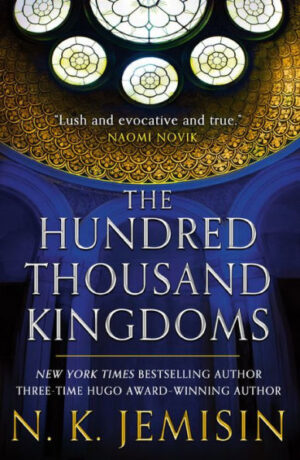
“Epic delight.” —Nisi Shawl, Everfair
The Paper Menagerie and Other Stories by Ken Liu (2016)
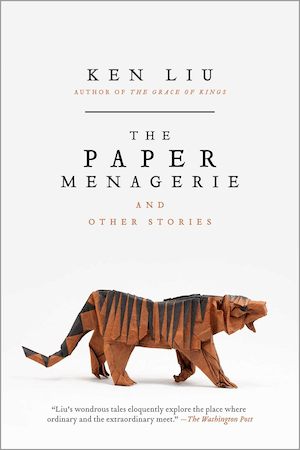
“I’m a huge fan of Ken’s Dandelion Dynasty epic fantasy series (The Grace of Kings), which I think is brilliant in its complex and nuanced examination of cultural change. But in terms of influence, I suspect Ken’s beautifully crafted and elegantly conceived short fiction, like the multi-awarding winning “The Paper Menagerie,” may have had a greater influence both on writers and on the world outside the genre.” —Kate Elliott, Unconquerable Sun
The Traitor Baru Cormorant by Seth Dickinson (2015)
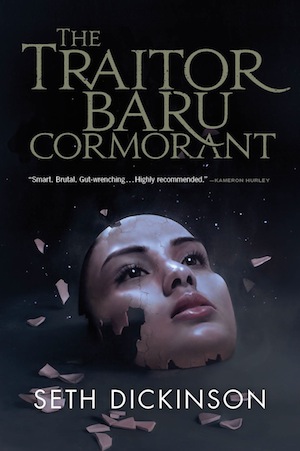
“A political fantasy book about an ACCOUNTANT? Oh, yes. While you’re busy untangling the thematic web of imperialism, colonization, and justice, Seth Dickinson is running circles around you with dialogue sharp enough to spear a tax form on.” —Bailey Bigott, Reactor
Vita Nostra by Marina Dyachenko & Sergey Dyachenko, translated by Julia Meitov Hersey (2007)
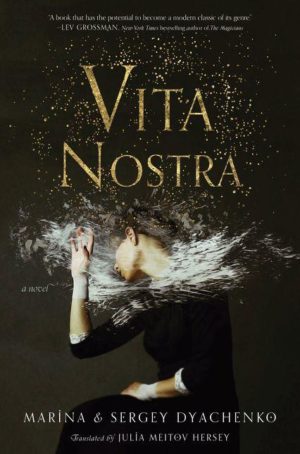
“A singular, nauseating (affectionate) work of genius.” —Olivie Blake, The Atlas Six
“Russian Fantasy. One of the strangest, darkest, most inventive texts I’ve read. A young woman meets a stranger at the seaside and begins to vomit coins. Her coin collection purchases her residency at a school that teaches truths of the universe, namely that a dark logic of language and grammatical principles undergird the world. When she discovers her own grammatical ability to change the fabric of reality, everything shifts. Truly unlike anything else I’ve ever read. A poem, a fairy tale, a fable of fate. This is for the true lover of experimental speculative fiction.” —Molly McGhee, Jonathan Abernathy You Are Kind
Other Notable Submissions
- All The Birds in the Sky by Charlie Jane Anders
- The Ballad of Black Tom by Victor LaValle
- The Blade Itself by Joe Abercrombie
- Circe by Madeline Miller
- The Curse of Chalion by Lois McMaster Bujold
- A Darker Shade of Magic by V.E. Schwab
- Deathless by Cathrynne M. Valente
- Her Body and Other Parties by Carmen Maria Machado
- House of Leaves by Mark Z. Danielewski
- Kushiel’s Dart by Jacqueline Carey
- The Library at Mount Char by Scott Hawkins
- Light From Uncommon Stars by Ryka Aoki
- Lincoln in the Bardo by George Saunders
- The Martian by Andy Weir
- The Mountain in the Sea by Ray Nayler
- Never Let Me Go by Kazuo Ishiguro
- The Night Circus by Erin Morgenstern
- The Raven Boys by Maggie Stiefvater
- Sorcerer to the Crown by Zen Cho
- The Spear Cuts Through Water by Simon Jimenez
- Spinning Silver by Naomi Novik
- Strange the Dreamer by Laini Taylor
- A Stranger in Olondria by Sofia Samatar
- Tender is the Flesh by Augustina Bazterrica
- Too Like the Lightning by Ada Palmer
- An Unkindness of Ghosts by Rivers Solomon
- Who Fears Death by Nnedi Okorafor
Participating Authors: Charlie Jane Anders, Paolo Bacigalupi, Travis Baldree, Samit Basu, Matt Bell, Holly Black, Moniquill Blackgoose, Olivie Blake, Shannon Chakraborty, Shelley Parker Chan, Vajra Chandrasekara, Roshani Chokshi, CL Clark, P. Djeli Clark, Lara Elena Donnely, Katharine Duckett, Sarah Beth Durst, Kate Elliott, Amal El-Mohtar, Chloe Gong, Alix E Harrow, Rachel Hartman, Alexis Henderson, Grady Hendrix, SL Huang, Emily Hughes, Anton Hur, Simon Jiminez, Alaya Dawn Johnson, Micaiah Johnson, Mary Robinette Kowal, Fonda Lee, Wen-Yi Lee, Yoon Ha Lee, Kelly Link, Ken Liu, Carmen Maria Machado, Victor Manibo, Freya Marske, Molly McGhee, Seanan McGuire, Silvia Moreno-Garcia, Garth Nix, Tochi Onyebuchi, Ava Reid, Brandon Sanderson, John Scalzi, VE Schwab, Samantha Shannon, Nisi Shawl, Tara Sim, Destiny Soria, Sonia Sulaiman, Wole Talabi, June CL Tan, Aiden Thomas, Chuck Tingle, Maggie Tokuda-Hall, Cadwell Turnbull, Jo Walton, Martha Wells, Chuck Wendig, and Wendy Xu.










